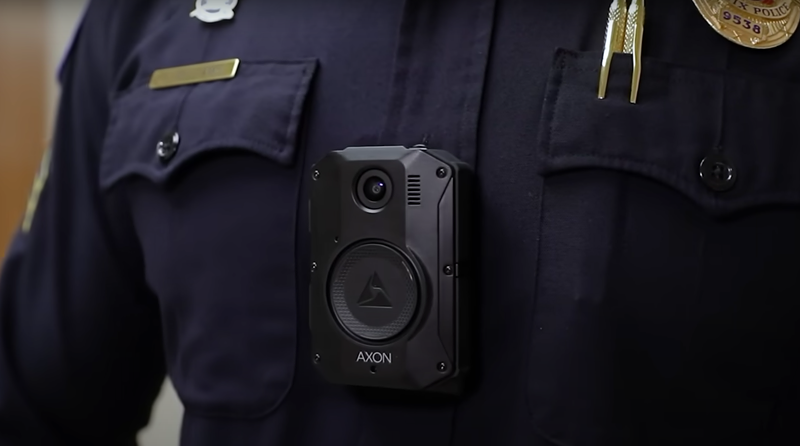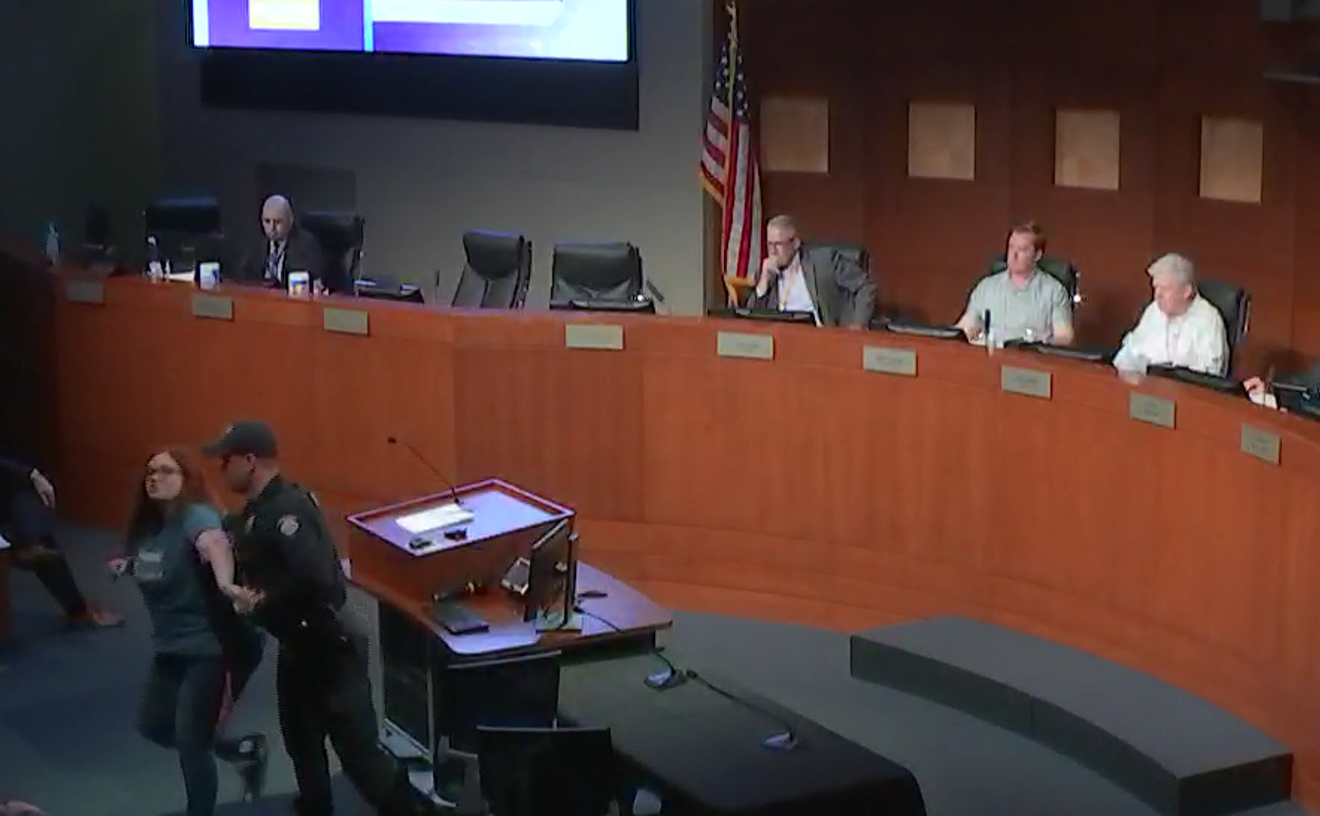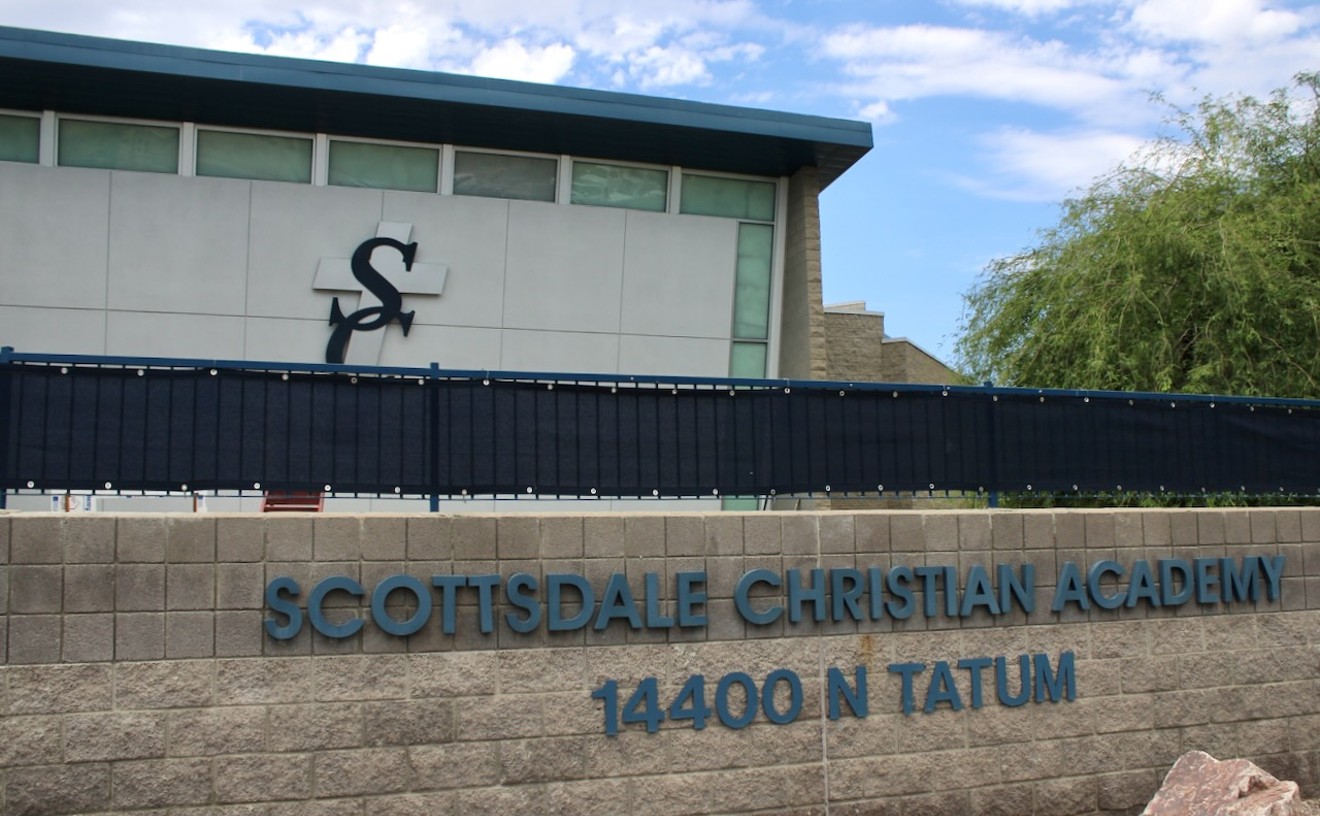Public records advocates say an Arizona law that allows police departments to charge hourly rates to review body-worn camera footage before releasing it is leading to massive fees for the public and potentially illegal charges.
But the law’s main proponent said that’s just a sign that it’s working as intended, because the whole point was to charge enough money for the video to deter frivolous requests.
Last year, the Arizona legislature passed a measure that allows any county, city, town or political subdivision of the state to enact a one-time fee of $46 “per video-hour reviewed” for public records requests to law enforcement agencies that seek footage from body-worn cameras.
The measure, by Republican state Sen. John Kavanagh, a former New York police officer, was passed largely along party lines and signed into law by Democratic Gov. Katie Hobbs in June 2023.
The implementation of the new fee is not universal and agencies across the state have varying levels of fees. The Arizona Mirror gathered the fee schedules of a number of law enforcement agencies across the state to gauge how the law is being applied and found some instances where it may be being abused.
“We basically predicted exactly what is happening,” Jared Keenan, the legal director for the ACLU in Arizona, said to the Mirror. “The cost can become pretty steep pretty quick.”
Some instances shared with the Mirror have included bills for body-worn camera footage reaching upwards of a thousand dollars from local police departments who have enacted this policy change.
“If John Q Citizen just wants to watch a video for whatever reason, why should everybody else pay for it and not John Q Citizen?” Kavanagh said in an interview. “If people want to be watchdogs and ask for all these videos, then they should pay for it and not the average taxpayer.”
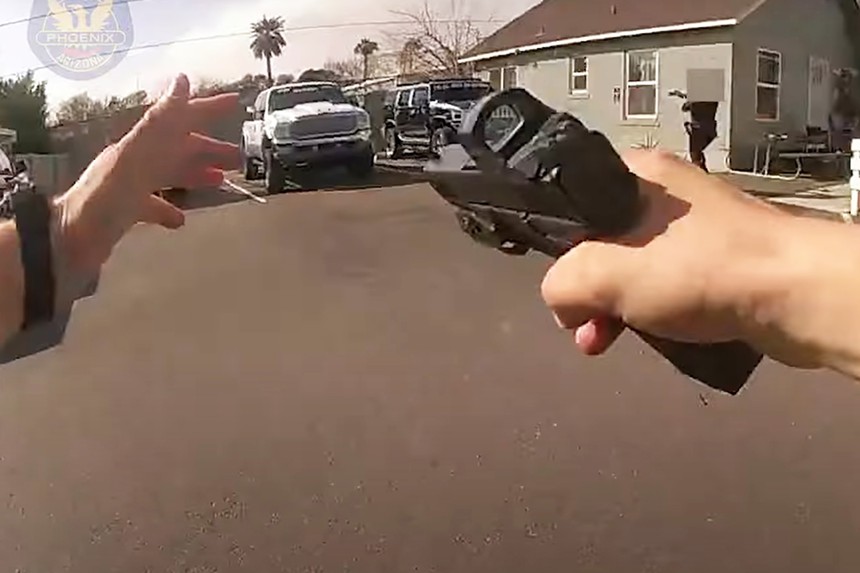
Why the change?
In the 2023 legislative session, Kavanagh told his legislative colleagues that the goal was to create “reasonable fees” for body-worn camera requests.
“This is just about, not a profit, but fair reimbursement to the taxpayer who have to shoulder this expense,” Kavanagh told the Senate Government Committee in February 2023. He said he was not opposed to transparency, but the costs associated with being transparent — including redacting records and editing videos — had become “expensive.”
For instance, the Phoenix Police Department has blamed staffing issues for limiting its ability to timely respond to public record requests. (A recent report by the U.S. Department of Justice disputed that, and noted that the department was not forthcoming with records, which has also led to lawsuits over failing to produce records.)
But the Phoenix Police Department is one of the few agencies the Mirror found that is not charging the maximum $46. Instead, it charges $4 plus a $5 deposit that “may” be refunded.
Kavanagh said the $46 hourly charge was designed to cover the cost of the employee who is undertaking the redaction efforts on the video footage.
The Mirror has reported previously how some agencies apply a “medium blur” as a redaction to all video footage they release which some argue goes against the color of the state’s public record law. Police have defended the practice, saying it allows them to more quickly release records, as many agencies do not have automatic redaction software.
The 2023 law mirrored a 2021 law that allowed the Arizona Department of Public Safety to charge similar fees. Currently, DPS charges $21.33 for the first half-hour of footage and $21.33 for each half-hour proceeding, in addition to a $9 fee to email the footage when it is ready.
Kavanagh said he brought the legislation at the behest of the League of Arizona Cities and Towns, and it was backed by a number of law enforcement agencies and police unions. Kavanagh said that “taxpayers are already subsidizing these videos.”
The initial version of the bill had no cap on the amount agencies were allowed to charge, but the final version limited charges to $46 per hour of video. Kavanagh said that police budgets were being negatively impacted by large requests for body-worn camera footage, citing “horror stories” of people requesting “mountains” of public records to only inspect them for 10 to 20 minutes.
“Some people do this just to piss off the municipality,” Kavanagh said.
The weaponization of the public records process has become a concern for many local governments, as groups have flooded them with a variety of requests, often related to culture war issues or the election, that take up a vast amount of time and money.
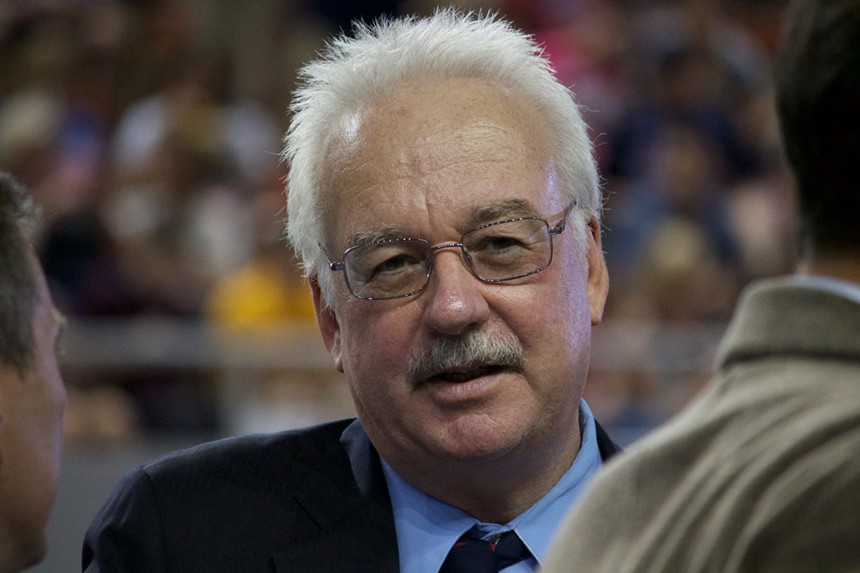
Who is doing what?
Of the 25 agencies that the Mirror gathered information on and who responded to requests for their fee schedules, 11 charge the maximum of $46 an hour, sometimes with additional fees. Many others have fees close to the $46 threshold.
Those charging the maximum amount include the municipal police departments in Flagstaff, Gilbert, Mesa, Yuma, Lake Havasu City and Surprise. The Arizona Department of Public Safety and the sheriff’s offices in Pima County, Gila County, Coconino County and Cochise County also charge the maximum $46 fee.
Other agencies, like the Tucson Police Department, charge $44 per hour of video reviewed.
Many law enforcement agencies also have different stipulations or additional fees. For example, on top of charging the maximum amount per hour of video, the Flagstaff Police Department charges $30 for “digital storage.” The Coconino Sheriff’s Office has the same policy, and its video records requests are handled by Flagstaff police. Sean Connolly, Flagstaff’s chief of police, did not respond to a request for comment or answer questions about why Flagstaff handles Coconino’s public records requests.
Fees like Flagstaff’s that go above and beyond the $46 hourly fee have alarmed public records advocates and even Kavanagh, who said that if “someone is being charged $30 for a thumb drive, that isn’t right.”
Kavanagh said he was unsure if the policy violates Arizona public records law, adding that it could be part of “processing costs.”
Other agencies have different fees. In Lake Havasu City, police charge a $23 non-refundable deposit — on top of the $46 per hour of video footage released — and Gilbert Police Department requires an upfront deposit.
Those charges are aimed at deterring people from holding law enforcement accountable, said Keenan, the ACLU attorney.
“The government is supposed to answer to the people and the only way people can demand answers from the government is if they know what they are doing,” he said.
Keenan said that while media organizations, advocacy groups and attorneys may be able to front the bill, the average person may not be able to. For example, families of victims of police violence may request body-worn camera footage — but if multiple officers are involved in an incident, that $46 fee could be multiplied many times.
If five officers with cameras are involved in an incident, the police departments can charge $230 for just one hour of footage.
Kavanagh said this particular scenario was the main reason for pushing the legislation.
“They do ‘Cop A’ and then they do ‘Cop B,’” Kavanagh said.
He criticized people who request body camera footage from all officers at an incident and said they should only seek the video from a single officer, and then request more footage if that initial request isn’t satisfactory. “Why don’t you get the video from the main officer?” Kavanagh said. “You don’t need five videos to catch everything.”
Kavanagh stressed that the legislation was aimed at people making “big requests” who are “abusing” the system.
But Keenan and others are worried that the policies enacted by some agencies allow them to “double dip” by adding additional costs, such as charges for sending records or upfront deposits, and is hampering transparency.
“We have concerns that the police departments are essentially double dipping,” he said. “Our concern grows that what this is essentially doing is undermining the public records law.”
Kavanagh contended that the cameras still act as a “deterrent” to bad behavior by police — even if the public can’t easily or cheaply access their footage — and allow for oversight by the department.
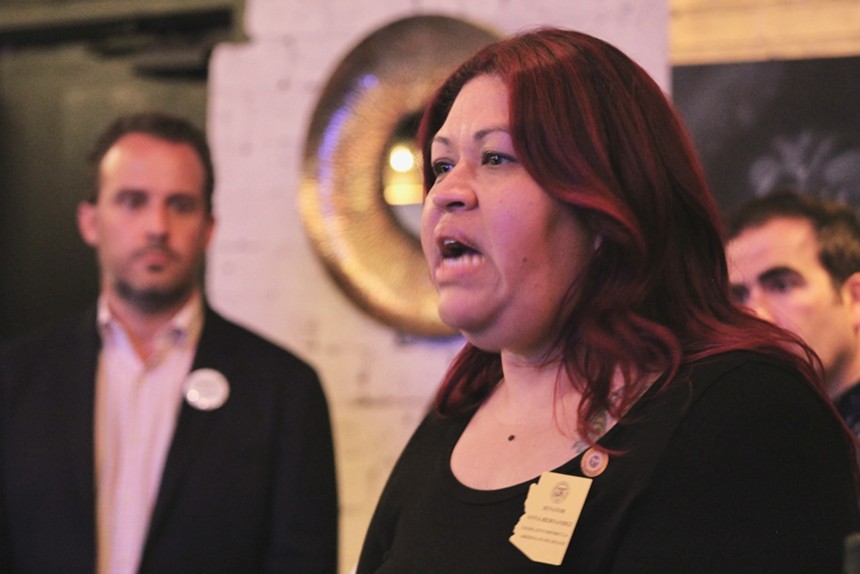
Legislative changes
No one has yet gone to court to challenge the new fees, and it’s unclear if anyone will. And if a lawsuit is filed and winds up in the Arizona Supreme Court, attorneys said it would face an uphill climb: When Justice Bill Montgomery was the Maricopa County attorney, he sent a letter to police chiefs in the county asking them to consult his office before releasing footage.
That means any changes to the law would likely have to come from the legislature, which is currently controlled by Republicans, who pushed for the measure in the first place.
“We would be better suited working on a path to making that more accessible and not less accessible,” Sen. Anna Hernandez, D-Phoenix, said to the Mirror.
Hernandez has experience as a family member of a victim of police violence attempting to get records from an agency that was less than willing. Her brother was shot and killed by Phoenix police in 2019, and his death was a driving force behind her running for the state legislature.
She has pushed for a “family bill of rights” for family members of victims of police violence that would give family members access to body-worn camera footage and much more. Republicans refused to consider the bill.
“It has been really hard to obtain any footage or reports for victims or family members. So this has already been an issue,” Hernandez said, adding that the new policy creates a barrier to getting video records. “We shouldn’t be putting unreasonable fees on footage.”
Kavanagh said he’d be willing to work with any legislators who feel that a change may be needed to the law, especially to make sure agencies are not overcharging for items like CDs or thumb drives.
“We are always interested in working with the legislature and other policymakers to repeal bad policy,” Keenan said, adding that the votes would need to be there in order for that to happen, something that could be difficult with a GOP majority.
Hernandez said she hopes that something can be done in 2025 to make it easier for the public to have transparency on police, especially in light of the DOJ’s investigation into the Phoenix Police Department.
“At some point, we have to start having firm steps that will lead to transparency and accountability,” Hernandez said.
Keenan said that the new fees fly in the face of the initial rationale behind the implementation of body-worn cameras. Many police agencies began adopting the equipment as a way to create better transparency and accountability in order to gain better public trust. Price gouging public records requests for said footage defeats that purpose.
“The reason the public demanded body-worn cameras is because they had concerns about the honesty and integrity of police,” Keenan said. “I think that this is another example of police and prosecutors and their allies in the state legislature to undermine what should be better public disclosure of information on what the police are doing.”
This story was first published by Arizona Mirror, which is part of States Newsroom, a network of news bureaus supported by grants and a coalition of donors as a 501c(3) public charity.

